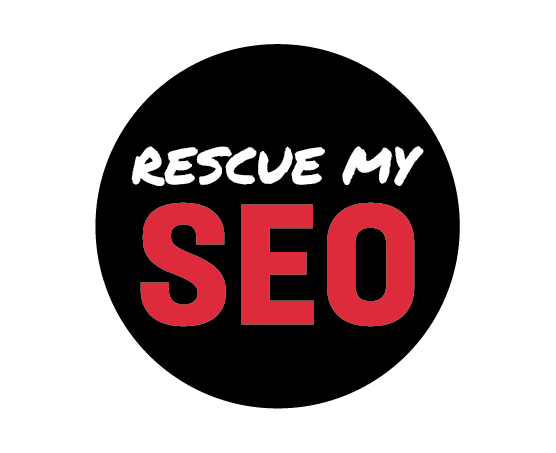
As AI-powered search transforms how people discover businesses online, the SEO landscape is shifting rapidly. In 2025, it’s no longer enough for your website to rank high on traditional Google results — now you need to be present and cited within the generated answers of platforms like Google’s AI Overviews, ChatGPT, and other AI-powered search engines. At Rescue My SEO, we’re working hands-on with small businesses nationwide to help them thrive in this new reality. Here’s our practical, detailed guide to Generative Engine Optimization (GEO), with specific actions you can take right now to increase your website’s authority, citations, and traffic from AI-driven search.
What Is Generative Engine Optimization (GEO) — and Why Does It Matter for Small Businesses?
GEO is about optimizing your website and content so that AI search systems — not just traditional search engines — consider your business a trusted, authoritative source and reference your content with direct brand mentions. These AI systems don’t just show a list of blue links; instead, they generate conversational answers and summaries for user queries. If your business isn’t cited, you’ll miss out on a growing percentage of highly qualified traffic that never even scrolls through standard results.
- AI-generated answers already influence millions of searches every month. This number is accelerating, so getting in early matters.
- AI search favors sources with deep topical authority, trustworthy citations, and clear structure — often referencing only a few key websites per answer.
- For local businesses, GEO is also key to showing up in “best of” or “where to find” AI answers that drive actionable foot traffic or direct leads.
The New Rules of SEO: How GEO Changes the Playbook
While traditional SEO is still foundational, GEO means focusing on:
- Being cited, not just ranked — AI engines look for clear, unambiguous references to experts and businesses, especially those that are repeatedly mentioned across the web.
- Authorship, expertise, and factual accuracy — Content with a strong author or business identity, transparent sources, and up-to-date, error-free information earns more trust from AI systems.
- Structured, semantic content — Schema markup, FAQs, and clearly defined sections make it easier for AI to understand and summarize your pages.
Step-by-Step: How We Optimize for GEO and AI Search in 2025
Here’s our hands-on advice for small business owners, distilled from testing, research, and dozens of successful campaigns:
1. Lock Down Technical SEO and Crawlability
- Ensure your site uses clean, HTML-first code and server-side rendering (where possible), because AI search engines need to easily crawl your site content.
- Test page speed and mobile friendliness — Google’s AI Overviews and similar tools favor fast, mobile-optimized sites. Use tools like Google Search Console or Core Web Vitals reports.
- Set up HTTPS for security, as trust and site integrity are baseline requirements.
- If you haven’t recently, consider a detailed technical SEO audit. Our SEO audit services are a great starting point for identifying issues AI engines might encounter.
2. Showcase E-E-A-T: Experience, Expertise, Authority, and Trust
- Highlight genuine customer testimonials, awards, accreditations, and success stories on your site wherever possible.
- Publish original, detailed guides addressing real questions from your target audience. For example, home services can create detailed troubleshooting or “what to do if” posts addressing emergencies in your area.
- Add author bios with credentials on important blog posts and resources. This is key for local businesses where your reputation is part of your community standing.
- Cite authoritative sources and use trustworthy external links to demonstrate your research and transparency.
Want to dive deeper into reputation building? See our post on choosing the best SEO agency for insights on credibility signals.
3. Earn Off-Page Brand Mentions and Third-Party Citations
- Get mentioned (with business name and location) on reputable directories, press releases, local news stories, community resource lists, and high-quality industry sites — no shady link-building schemes.
- For multi-location businesses, ensure each location gets cited uniquely and consistently. Learn more in our detailed guide for multi-location SEO.
- Encourage happy customers to review your business on trusted platforms. AI engines draw from these reviews when evaluating local trust and authority.
4. Structure Content for AI Readability and Entity Recognition
- Organize pages with clear hierarchical headings (h1, h2, h3) and use bullet points
- Include detailed FAQ sections targeting both broad and long-tail questions. The more specific and well-answered the queries, the more likely your site is to be cited in AI responses.
- Summarize main points and value near the top of each page, as AI overviews tend to extract and paraphrase initial key information first.
- For each core product or service, create dedicated detail pages linked from your main navigation. Keep business details (name, hours, contact) consistent site-wide.
- Use semantic HTML tags and descriptive anchor text when interlinking pages. For example, connect a guide on SEO content writing to your core service offerings naturally within the text.
5. Implement and Maintain Robust Schema Markup
- Add relevant structured data (Schema.org JSON-LD) including
LocalBusiness,FAQPage,Product, andServiceto core pages. - Standardize
sameAsproperties to link your business entity to your social profiles and trusted directory listings. This clarifies your identity for both AI and traditional search engines. - Update Schema regularly to add new services, locations, awards, etc., as your business evolves.
See our full breakdown in the technical SEO guide.
6. Emphasize Consistency and Entity-Based SEO
- Double-check that your business info — name, address, phone number, categories — is consistent across your website, Google Business Profile, local citations, and social platforms.
- For service area businesses, make sure each city or region you serve has a unique, well-optimized landing page with unique local content. For guidance, review our advice on building location pages that actually rank.
- Crosslink related topics and services internally. Contextually connect your expertise throughout your site to signal topical authority and coverage to AI systems.
7. Expand Content Across Formats and Platforms
- Repurpose in-depth articles into video FAQs, slide decks, podcasts, and short-form Q&As on your blog and social media. AI engines ingest diverse sources, so maximize both format and reach.
- Answer relevant questions on reputable community forums, Q&A sites, or industry boards. These often feed training data for AI and can boost your authority and citations.
8. Regularly Monitor and Update for AI Search Performance
- Track your visibility in AI-powered search systems using newer analytics platforms or mentions monitoring tools. While the GEO analytics market is evolving, keep an eye on how often your brand is referenced in AI answers.
- Continuously refresh your best-performing content for accuracy, depth, and new developments. Stale or thin content is quickly bypassed by both AI and users.
For tips on auditing your local SEO effectiveness, see our post on how to run a local SEO audit.
9. Integrate Your FAQ, Reviews, and Community Content
- Add a living FAQ section and update it with real questions from your inbox, Google Business Profile, chat, and social comments. AI uses this data to match answers with user queries.
- Prominently feature customer reviews and testimonials. Positive, third-party language about your business helps reinforce your reputation for both AI and human visitors.
- Contribute to local guides, industry collaborations, and expert roundups when possible — your business may be referenced in new content trains for AI engines.
10. Stay on the Leading Edge by Adapting Quarterly
- The landscape is shifting quickly as AI search evolves. Schedule a quarterly review of your GEO strategy and results.
- Sign up for trusted industry newsletters or join small business forums focused on SEO and AI search trends to stay updated.
What Success Looks Like: A Roadmap for Tangible Results
- Your business is now cited as a source in AI-generated search answers, not just listed in “classic” results. Traffic from AI engines rises over time.
- Users see your listing and a blurb or review snippet about your services in AI summaries, often before they reach the standard search listings.
- Qualified leads and customer interactions increase as users find you directly through AI-answers, not just traditional search or paid ads.
Helpful Actions to Implement Right Now
- Audit your current top pages for crawlability, accuracy, and up-to-date business information.
- Add schema markup and optimize your Google Business Profile with the latest information, photos, service details, and FAQs.
- Refresh and expand your on-site FAQ, aiming for depth and real-world utility.
- Reach out for a mention in one authoritative news article or local directory this quarter.
- Set a reminder to review internal and external citations for accuracy and consistency every three months.
Key Takeaways: GEO Is the Future — Don’t Get Left Behind
- Generative Engine Optimization is not a fad — it represents the future of online discovery as AI search shifts how users interact with business information.
- Foundational SEO now needs to be layered with new tactics around E-E-A-T, structured data, review management, and frequent content updates.
- For small businesses, especially those focused on local markets, this is an opportunity to lead the pack as early adopters of GEO and capture meaningful organic traffic before competitors catch up.
If you’re ready to take your small business SEO into the AI era, we’re here to help. At Rescue My SEO, our organic SEO services and local SEO solutions are purpose-built for longevity and growth in the next wave of search technology. We’ll work with you to build your authority, increase quality citations, and adapt your website for the next decade of digital discovery.
The AI future is here — let’s make sure your business isn’t just keeping up, but standing out.



